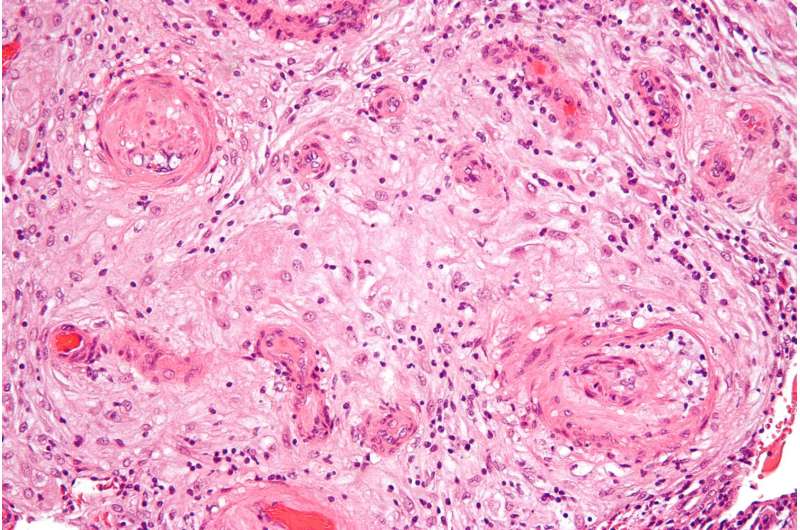A blood test to differentiate severe COVID-19 from preeclampsia in pregnant women

Pregnancy brings deep changes in a woman's physiology, especially regarding her blood system. The placenta is the organ that ensures an efficient communication between the mother and the baby. This organ grows quickly and links a significant quantity of mother's blood supply to the fetus. Thus, placenta has a relevant impact on blood pressure and it may turn into a source of cardiovascular risk.
preeclampsia is an inflammatory condition that appears during pregnancy and whose cause is still unknown. This condition is characterized by high blood pressure combined with organ dysfunctions, such as renal and liver failure. Should preeclampsia not be diagnosed early, it can lead to serious complications for the mother and the baby. Induced delivery and placenta removal are currently the only solution for this condition.
The first cases of COVID-19, caused by SARS-CoV-2 infection, appeared at the beginning of 2020. COVID-19 may cause severe illness within a vulnerable population, including pregnant women. The clinical manifestation of this severe infection goes beyond a dysfunction of the respiratory system and can have similarities with preeclampsia. These similarities may cause errors in the treatment of the patients, as they have different needs: In preeclampsia we prioritize the delivery of the baby, and for COVID-19 we focus on the recovery from the disease.
In both cases, we observe a disruption of the normal function of the endothelium, which is the inner lining of the blood vessels and is partly responsible for the blood pressure.
Dr. Marta Palomo from the Josep Carreras Leukaemia Research Institute, together with Dr. Lina Youssef, Dr. Francesca Crovetto and Dr. Fàtima Crispi, from BCNatal (Hospital Clínic and Hospital Sant Joan de Déu) and the Fetal and perinatal medicine group of IDIBAPS, and under the supervision of Dr. Maribel Díaz-Ricart, head of the Hemotherapy and Hemostasis group of Clínic-IDIBAPS, questioned the extent to which preeclampsia and COVID-19 share biological characteristics. They assessed indicators of endothelial dysfunction, blood clotting, angiogenesis and immune function from blood of pregnant women with preeclampsia or COVID-19 and compared them with those of healthy pregnant women.
The results of this study have been recently published in American Journal of Obstetrics and Gynecology. In the publication, the research team managed to differentiate preeclampsia from severe COVID-19 thanks to the strong and reproducible differences in the panel of indicators, with angiogenesis (sFlt-1, Ang2 and P1GF), blood clotting (antigen vWF) and endothelial damage (VCAM-1 and sTNFRI) being the most significant.
The study also shows that there are shared elements between both pathologies, such as the activation of the complement system, an important part of the immune system, even if the alterations caused by COVID-19 are less significant than the ones caused by preeclampsia.
These outcomes are a further step in preeclampsia characterization, a little-known pregnancy-related disease but mainly responsible for maternal and perinatal mortality as well as premature births. These results are also medically relevant, as they offer diagnostic tools that allow us to distinguish preeclampsia from COVID-19 and help in their clinical management and treatment.
More information: Marta Palomo et al, Differences and similarities in endothelial and angiogenic profiles of preeclampsia and COVID-19 in pregnancy, American Journal of Obstetrics and Gynecology (2022). DOI: 10.1016/j.ajog.2022.03.048




















